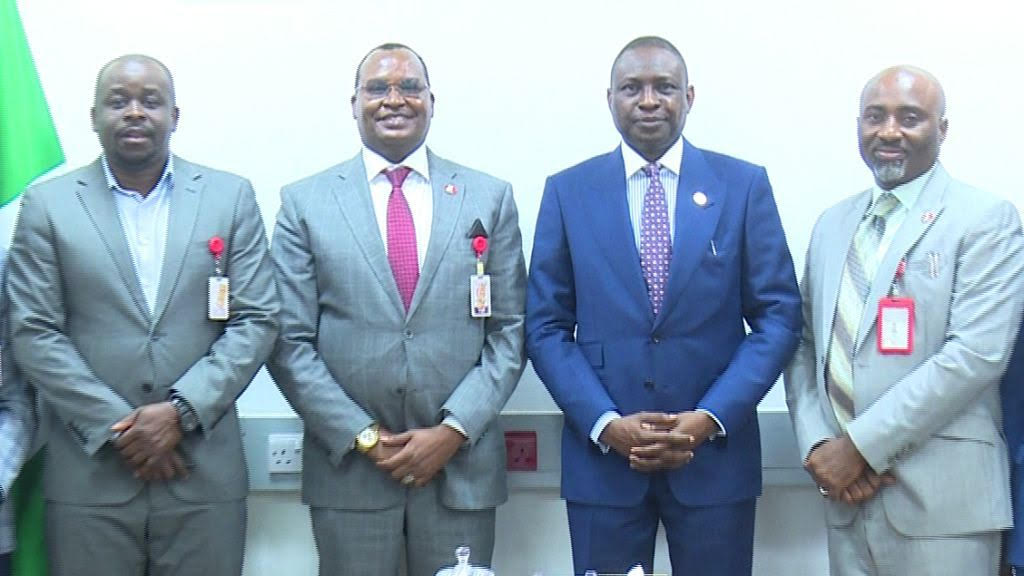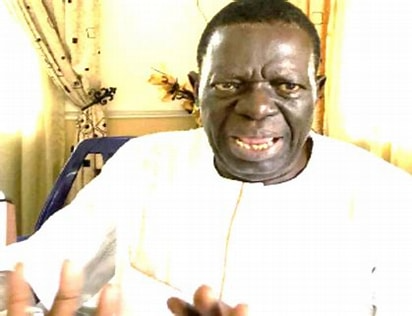
By Newsmata
Buoyed by the November 15, 2024 Supreme Court judgement which threw out the suit by 19 state governors challenging the constitutionality of the Economic and Financial Crimes Commission, (EFCC) and similar bodies to hold them accountable for their stewardships, chairman of the anti-graft agency, Ola Olukoyede, has emboldened his men to go ahead and investigate the finances and activities of even serving governors, stressing that “the only thing you can’t do is prosecute”.
Breaking his silence on the legal tussle on Thursday in Abuja when a delegation of International Institute for Democracy and Electoral Assistance (IDEA), led by its Regional Director for Africa and West Asia, Dr. Roba Sharamo paid him a courtesy visit, an upbeat Olukoyede said the verdict has placed the Commission in a stronger pedestal to fight economic and financial crimes and other acts of corruption, according to a press statement by the Commission’s Head, Media & Publicity, Dele Oyewale.
The EFCC boss who gleefully told his visitors that the ball was now in their court, said, “I want to let you know that we are more solid now than ever before. You are aware that 19 governors took us to court. They went to court and the judgment that was given makes us stronger than ever before. The Supreme Court Justices gave it to them, reminded them that the Supreme Court has spoken on this matter and given judgement.
So why are you wasting your states’ resources on it? Why are you wasting the time of this court by bringing this application to us again?
“Number one, they said that the EFCC has power over federal agencies, state agencies and local government agencies. Number two, they said, where the EFCC is working, it has the right to cover the field. It is what we call the doctrine of covering the field in Nigeria.
“It’s a legal doctrine. It’s a principle that says that where a federal agency has covered the field, no state or local government agency has the right to compete with it. In other words, wherever the EFCC is operating, state or local government agencies don’t even have the power to meddle.
“So, I have told my men that the ball is in our court, now. You can investigate even a serving governor. So, go ahead, investigate their finances and their activities. The only thing you can’t do is prosecute. You have to wait until they leave office when they don’t have immunity anymore. They also warned the people who have been using the instrumentality of the state to shield themselves from justice to desist from it. The Supreme Court has spoken, and it has a big impact. We are going out to work without any further inhibition”.
Appreciating the partnership of IDEA with the Commission, Olukoyede noted that the international development partner had been impactful, functional and reliable.
According to him, “We appreciate your impact, and the partnership has come to stay”. He identified some critical areas where the Commission needed more support, stressing that the volume of work of the EFCC and the new framework it was working on required stronger collaboration with IDEA.
Earlier in his remark, Sharamo expressed confidence in and satisfaction with the Commission’s anti-corruption drives, especially in the area of asset recovery, noting that IDEA had been a longstanding strategic partner of the EFCC. He also stressed that the visit was motivated by the need to explore more areas of need and support for the Commission.
“I want to really appreciate the work that we do together, and I think it’s always very encouraging when you have a partnership that is visible and vibrant. The programme that we run will only be very useful if it reflects your priorities; if it really integrates your priorities into the design of the projects. So, we are basically there for you. I want you to consider us as an extension of your team. The aspect around asset recovery will continue to be a challenge, because people will say, people have stolen money, how much have we recovered?
“So, besides the asset recovery interventions that you have, maybe there are areas you feel we can be useful with a programme to help you. There could be more areas that we can be very useful and support you to deliver on your mandate,” Sharamo stated.
He applauded EFCC’s anti-corruption fight, which he posited, was critical in achieving meaningful human development indices in the country. “Fighting corruption and ensuring that the much-needed development resources are directed to the areas that they actually need to go, especially for human security, poverty alleviation and all that is critical.”
IDEA is an international inter-governmental institution, committed to promoting democracy and good governance with a global member Sate of 35 countries, out of which eight are from Africa, namely, Ghana, South Africa, Botswana, Namibia, Mauritius, Benin, Cape Verde and Tunisia. Nigeria is yet to enlist.
Recall that the 19 governors had in the lawsuit initiated by the Kogi State government and joined by 15 other states, had questioned the EFCC Establishment Act of 2004, which they contended was passed without adherence to Section 12 of the 1999 Constitution. The section mandates that for any international convention, such as the United Nations Convention against Corruption (UNCAC), to be incorporated into Nigerian law, it must be ratified by a majority of state Houses of Assembly. The states further argued that this procedural step was ignored, making the EFCC Act unconstitutional and, by extension, inapplicable in states that did not consent to it.
In the case filed under suit number SC/CV/178/2023, the governors insisted that the EFCC’s actions, including investigations and prosecutions involving state funds, violated Nigeria’s federal structure and amounted to overreach by the federal government.
The Independent Corrupt Practices and Other Related Offences Commission (ICPC) and the Nigerian Financial Intelligence Unit (NFIU) were also joined in the suit which has now been dismissed by the apex court.
